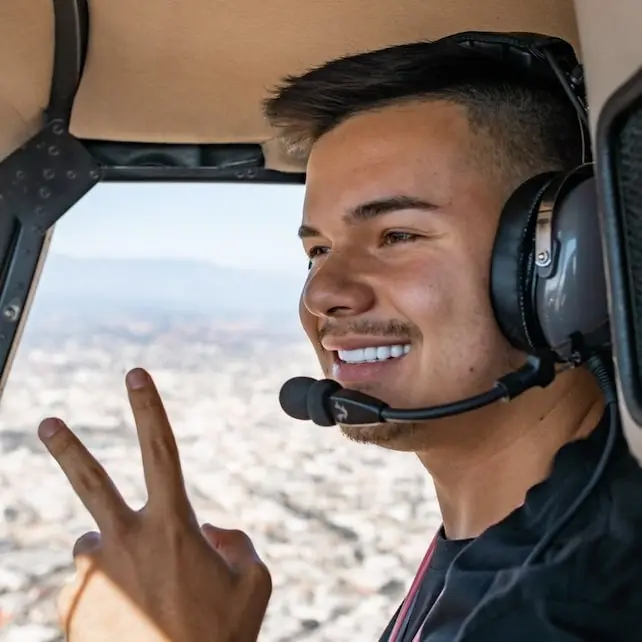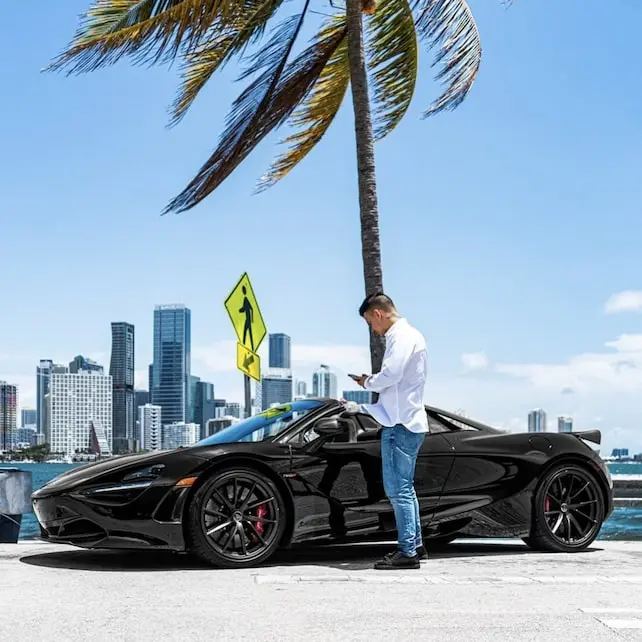
Kenzo Sobrie became a millionaire with Amazon FBA before his 20th birthday. His company, KZ International, is based out of Orange County, California.
“Our headquarters in Huntington Beach is our one-stop shop,” Kenzo says. “It’s where we do our sourcing, our selling, it’s where we store our products, it’s where we prep our products before shipping them to Amazon, the whole nine yards.”
“Essentially our business model, in regards to selling on Amazon, is wholesale FBA,” he explains.
“So if you look at some of the different products that we actually have here,” Kenzo continues, “you’ll see a bunch of different name brand products that you’ll see in your basic big box stores, like Target, Walmart, Costco.”
“All these brands already spend millions and millions of dollars on marketing and advertisements and whatnot, and all we need to do is source a product for a cheaper price and end up selling it for a higher retail price.”
“So what this allows us to do is not run any ads on any of our products; they’re all naturally in demand.”
“So literally it’s a plug-and-play business,” Kenzo claims.
“As long as you can source something for a cheaper price and sell it for a higher price, that’s where your margin is made, and there’s no complications.”
Kenzo tried private label, he tried building his own brand a few years back – and it totally flopped.
“Not saying that if I tried it now it wouldn’t perform but basically this business model just makes sense, it’s one of the oldest businesses out there,” he points out. “It’s just buy-low-sell-high retail, selling consumer goods.”
“We average about 75 to 100 pallets sending out to Amazon fulfillment centers per week,” Kenzo brags.
“Of course, it didn’t start out like this, in a huge warehouse,” he admits.
“When I first started, I just had my supplier send products straight to an Amazon fulfillment center.”
“‘Cause with FBA, Amazon picks, packs, ships your product, stores ’em, whole nine yards.”
“So I was able to leverage my supplier’s facility at first, but the thing is, when you have someone else and all these different variables moving around, it’s hard to quality control.”

The first product Kenzo ever sold when he got into wholesale FBA was Sharpie markers.
He spent $7,500, which was everything he had to his name, and that got him two pallets of these Sharpie markers.
He drove down to LA, picked them up in a flatbed truck himself, drove ’em back up to NorCal, and ended up flipping them for a profit of like $4,000.
That’s when he knew he was onto something. He had made an investment, got a good return, and everything went smoothly. Time to go full-force with it.
So from there, he got into everyday products like ChapStick, canned vegan soup, handheld vacuums, and everything in between.
Kenzo’s big on diversifying his offerings, making sure he’s well-rounded, sorta like you’d do if you were investing in stocks, right?
You wouldn’t (or at least, you shouldn’t) just have all your money in one stock or one sector. You wanna make sure something’s always going up, something’s always selling.
And yes, Kenzo believes his approach to Amazon FBA is a business model that can work for just about anyone, including you.
“If I see a product that’s doing $200k a month on Amazon,” he reiterates, “all I gotta do is source it for a lower price, and sell it for a higher price.”
“Now, don’t get me wrong, the more money you have for this business, the better.”
“I started with $7,500, which is more than the average person.”
“But I’ve had students start with $500 or $1,000. And just, as you get more and more money, it becomes more lucrative.”
For more of the nitty-gritty, you can always check out Kenzo’s course.